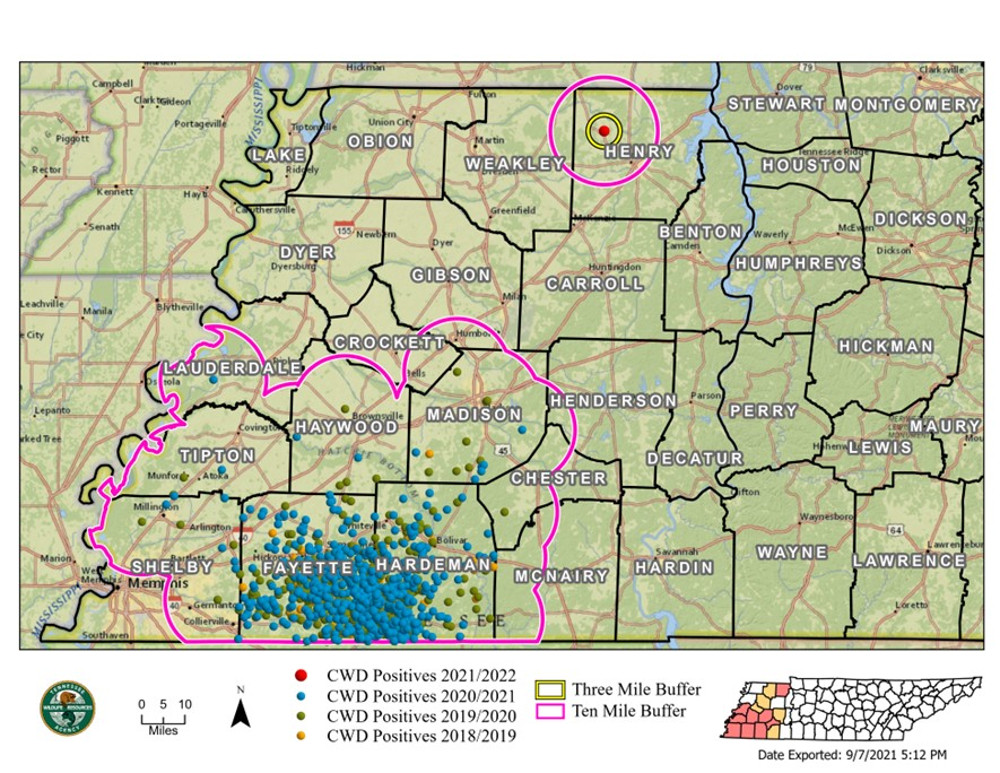NASHVILLE — Tennessee Wildlife Resources Agency (TWRA) staff responded to a call in Henry County about a 3.5-year-old doe who was thin and exhibiting strange behavior. Multiple tests confirmed that chronic wasting disease (CWD) was present. This result changes Henry County status to positive and Weakley County to high-risk. As a result, carcass transport, feeding, and mineral placement regulations are immediately triggered in both Henry and Weakley counties. For more information visit CWDinTennessee.com.
“While this is unfortunate news, we have employed a rigorous CWD surveillance program developed by world-renowned CWD modelers, biologists and epidemiologists since 2018,” said Stephanie Durno Karns, TWRA wildlife health specialist. “We have sampled over 800 deer in Henry and Weakley counties, far exceeding our testing goals. The message to hunters in these counties is to know the rules around transport and feeding, get your harvests tested, report any sick deer you see via our website, and keep hunting. Hunters are our greatest ally in fighting CWD.”
This unfolding situation will be addressed at the upcoming Tennessee Fish and Wildlife Commission Meeting in Kingsport, Sept. 16-17. Any decisions regarding other regulations will be made at that time.
The Tennessee Fish and Wildlife Commission instituted deer carcass exportation and wildlife feeding restrictions to positive and high-risk counties to best manage CWD in the state. Supplemental feeding of wildlife is banned in high-risk and positive counties. Therefore, placement of grains, salt products, and other consumable products for wildlife is prohibited. The ban does not apply to feed placed within 100 feet of a residence, feed placed in a manner not accessible to deer, or feed and minerals as the result of normal agricultural practices. Food plots are still legal in affected counties. More information about CWD is available at CWDinTennessee.com.



